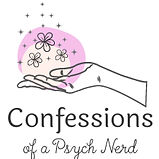Crushing the Stigma through Mental Health Literacy
- Lugbelkis Wernet
- Jun 13, 2023
- 4 min read
How education about Mental Health can change the course of one’s life. Imagine this… Little Suzy is suddenly experiencing anxiety and intrusive thoughts. She has no idea what is happening, just that these feelings are immense and scary.
She tells her mother, only to be invalidated. Her teachers look the other way at school, and her peers don't even acknowledge her. They notice a change in her but are unsure how to approach her or what to say.
The only conclusion in Suzy's mind is that she must be bad and unlovable. She feels alone and scared. These feelings followed her through adulthood and caused several maladaptive coping mechanisms, which led to failed relationships and lost professional opportunities.

Mental Health Literacy, or the lack thereof…
This is a story that, unfortunately, repeats itself too often. One that you might even identify with yourself. She could have avoided a lifetime of struggles with more awareness and support for what was happening to Suzy. This is why mental health literacy is so critical.
Mental health literacy is more than simply awareness. It is defined as understanding how to obtain and maintain positive mental health, understanding different mental health problems and how to treat these best, decreasing stigma related to these, and enhancing help-seeking efficacy.
Examples of how we could promote better mental health literacy and increase awareness are:
Including mental health and self-care education at school for both students and teachers. Daily and universal classroom practices can lead to better mental states and resilience.
Having more resources available for parents about mental health problems that can affect kids, risk factors, and how to handle these best. It would also be good to focus on common parenting behaviors that may seem harmless but might worsen things.
Include more information and resources on mental health in the workplace; this could be through training, education, and healthy workplace practices.
Having more information available for the general public on mental health, resources, and information on how to ask for help. This could be done through community campaigns or peer support approaches.
Why is this important?
Had Suzy's mom known the signs and taken her mental health issues seriously, had she reassured Suzy and gotten her help, and had the teachers known better about how to help, she would have felt less scared at home and school. If there had been better education about mental health as part of the school curriculum, then her peers might have been more likely to react with empathy. Suzy would have felt so much less alone and could have enjoyed more of her childhood.
Better mental health literacy means a better chance of people being more comfortable seeking help and getting this on time. People with limited mental health literacy may not recognize the signs that they need help.
Better mental health literacy means that loved ones have better tools and knowledge to support someone struggling. A lack of understanding about mental health can lead to discrimination and stigma.
Better mental health literacy means fewer people struggling unnecessarily in silence and fewer social issues, reducing the burden on health and social care services.
There are only benefits when it comes to promoting mental health literacy.
The good news is that educating yourself on mental health is never too late. Suzy finally gathered the courage to ask for help as an adult and learned how to manage her symptoms best and live a more fulfilling life. Nowadays, she is a mental health advocate promoting mental health literacy to prevent others from experiencing what she did. How can you promote Mental Health Literacy? In the same way that Suzy was able to heal by learning more about her mental health, you can also prevent unnecessary suffering by sharing knowledge on mental health. There are many ways to do this. Here are some ideas:
Check-in with the people around you and ask them how they are doing. If they indicate that they are struggling with their mental health, you can inform them of resources available for help.
Read about different mental health issues and how to support others through difficulties. Learning about healthy ways to care for yourself and prevent struggles is also essential. Modeling self-care can inspire and motivate others to do the same.
Sharing your story and experiences about dealing with your mental health. This can help others to feel less alone in their journey.
Encourage kind language and model how to treat others with mental health issues respectfully and kindly.
Volunteer in mental health and support initiatives to offer support and/or raise awareness about this important and relevant subject.
Use social media and other relevant channels in your area to share tips and tools on supporting your mental health best.
If you are struggling with your mental health. Know that you are not alone. There is hope. You are still worthy and deserving of kindness. An important step is asking for help. Feeling heard and supported can help you feel less alone. Sources:
https://emergingminds.com.au/resources/child-mental-health-literacy-what-is-it-and-why-is-it-important/ https://www.uregina.ca/mental-wellness/assets/docs/pdf/support/what-is-mental-health-literacy.pdf https://www.communityreachcenter.org/blog/8-ways-can-raise-community-awareness-mental-health-month/




Comments